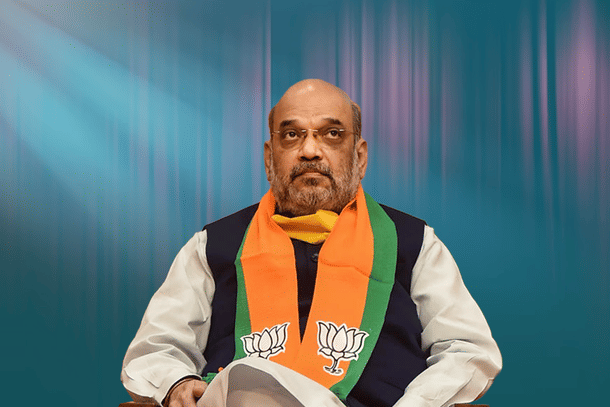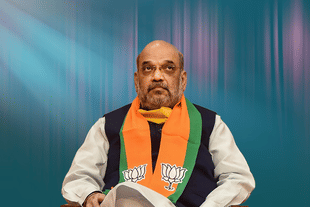Legal
Echoes Of GST Falsehoods: How The New Criminal Laws Are Facing An Onslaught Of Misinformation Campaign
Swarajya Staff
Jul 05, 2024, 01:40 PM | Updated 01:40 PM IST
Save & read from anywhere!
Bookmark stories for easy access on any device or the Swarajya app.


It's deja vu time.
In July 2017, when the Union government rolled out the goods and services tax (GST) regime across the country, it was buffeted by a steady stream of fake news and planted stories against the tax system.
All manner of reports were floated that "this item would suffer more tax" and "that item would bear the brunt of more levies". The atmosphere was rife with plenty of falsehoods, which the social media platforms are notorious for.
The government had to step in many times to issue clarifications and quell all the mischief at their infancy.
This history is now repeating itself when the three criminal laws, the Bharatiya Nagrik Suraksha Sanhita (BNSS), Bharatiya Nyaya Sanhita (BNS) and Bharatiya Sakshya Adhiniyam (BSA), have been formally unveiled across the country.
Those sections inimical to the Indian government are at it again, as a fear-mongering operation is afoot and spreading across social media.
The government, even though it has organised meetings to explain the salient features of the new legal apparatus, seems to have been caught off guard as one section after another is playing victim in the fresh setup.
The fact may be different and the criminal justice system is sought to be Indianised in the fitness of things.
No sooner the new legal system, which covers over 650 district courts and 16,000 police stations nationwide, was in place the first false salvo was fired.
There was breaking news everywhere that the first case under the new system was against a street vendor in New Delhi.
Plethora Of Canards
The 'street vendor' was the operative word there. The idea that was sought to be driven through a surreptitious implication that the new system was ranged against the poor and downtrodden like a street vendor.
The Home Minister of the country Amit Shah had to clarify that new laws had no bearing on the case against the said street vendor. But the damage was already done.
And then another campaign was floated that the laws had come into effect without adequate time frame. This was another red herring. The Bill was preceded by 9 hours and 29 minutes of discussions in the Lok Sabha and 6 hours in the Rajya Sabha. A parliamentary committee has debated it and offered suggestions, many of which have been incorporated.
The three bills, which sought to replace the existing British-era criminal laws (the Indian Penal Code (IPC), 1860; the Code of Criminal Procedure (CrPC), 1973 and the Indian Evidence Act, 1872), were later referred to a 31-member Parliamentary Standing Committee.
After consulting experts and stakeholders, the panel adopted its report on the Bills in November 2023 after recommending more than 50 changes. The revised Bills were introduced again in December 2023 and discussed in Parliament.
Now, one can claim Parliament discussions are infructuous. If it is true or not is a different matter, but it was debated thoroughly in the two Houses and has now become law after following all the due processes of democracy. Even as this misleading campaign was on, another flank was opened that painted a draconian picture of the new laws.
The medical community, which enjoys some public sympathy because of the fact that its work literally touches the lives of everyone, was chosen to spread calumnious canards.
A Bitter Pill From The Doctors
Medical negligence has been brought under the ambit of ‘criminal negligence’ in BNS. Actually, this is a welcome step from the perspective of the common public. When every profession faces the brunt of criminal prosecution in the event of proven negligence, it is unfair and even possibly illegal to leave out the medical profession.
Of course, the medical profession needs some leeway and the jurisprudence as it works in India already provides a good layer of protection to the doctors. The apex court has also laid down guidelines for additional protections for doctors.
Anyway, the biggest lie in the misinformation wave underway is the charge that the doctors face five years of jail term if their criminal negligence is proved. They claimed that under the previous law the maximum punishment was only two years. Even mainstream newspapers have put out stories that the doctors are mighty unhappy with the developments. This is patently false.
Same System In Vogue
The fact is, there is no change in the number of years of punishment from the previous legal regime, in which too doctors could be tried for criminal negligence.
Section 106 of BNS, which corresponds to the Section 304A of IPC which dealt with 'causing death by negligence', imposes a punishment up to five years to all, but actually exempts registered medical practitioners. They get two years jail terms like they previously did in the event of the case against them being proved in the court.
The only real change is that there is an addition of monetary fine in case of negligence being established in the court. Also, the registered medical practitioner refers to those with a medical qualification recognised under the National Medical Commission Act, 2019, which is applicable only to allopathic doctors. The others, who modern medicine deems as quacks, don't enjoy any exemption.
So, the new law actually favours those doctors who have nothing incriminating in their work. But the anti-campaign which has gained momentum is already suggesting that doctors will become 'risk-averse' due to the new laws. This is patently silly.
Doctors, who take risks as a genuine effort to save a patient's life, have never been brought under the book. It is only the extreme cases of flagrant negligence (like being found drunk or not attempting to save a patient in order to illegally harvest the body parts, the cases of which have not been uncommon) that are being sought to be targeted by the new law. It is for the benefit of the common person, who has to be the prime focus of any rational and sympathetic legal system.
The few doctors who have been raked up by dubious elements are barking up the wrong tree. They should not fall victim to a nefarious political plan unleashed by the usual suspects.
But the onus is also on the ruling dispensation to put down the fires of patently false and fake reports. If need be it should bring down the full force of new criminal laws on those spreading far-reaching rumours.
Also, clarity of communication will be, well, what the doctor ordered in the current environment.





